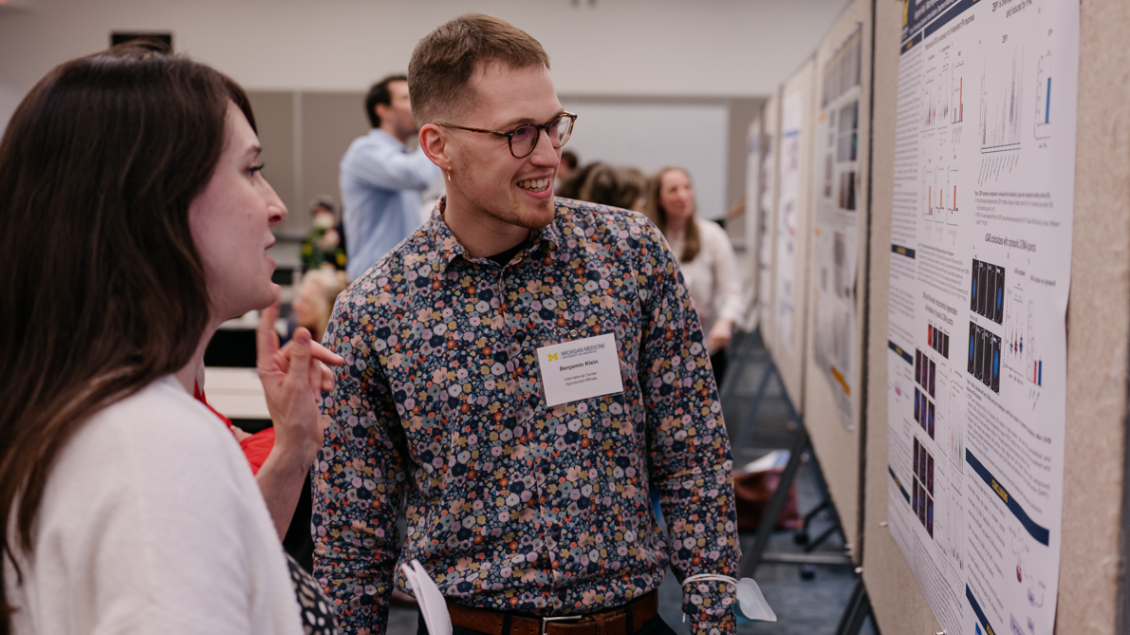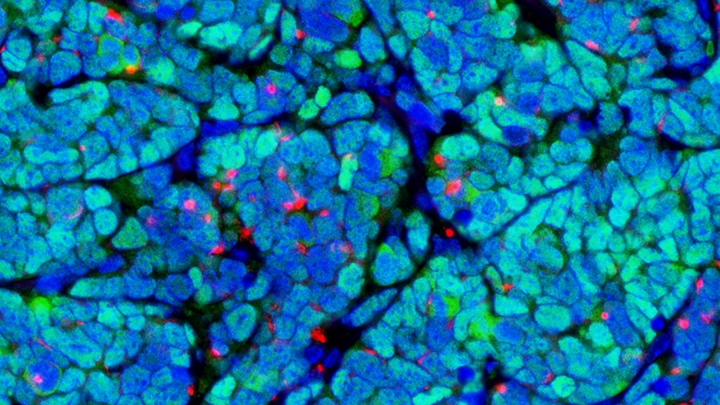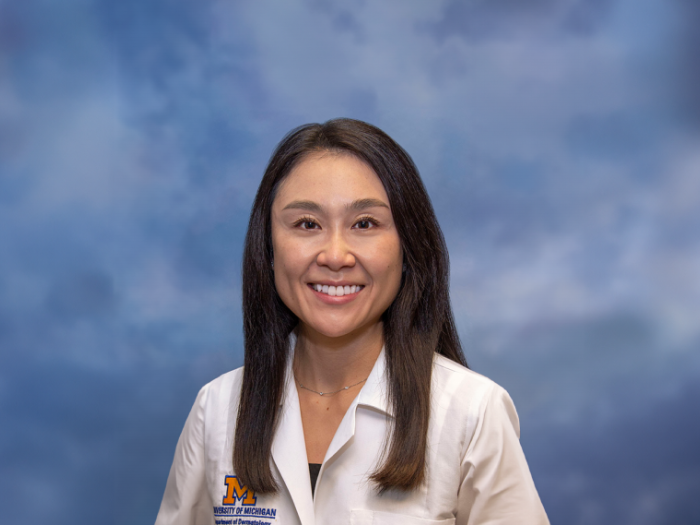
Pioneering Discovery
Our department is an established leader in dermatological research and clinical investigation.
Renowned for pioneering discovery, research is an integral part of the U-M Medical School Department of Dermatology, which has established programs in clinical, translational and basic science research. We are among the top academic dermatology programs in the nation with robust research funding from federal, industry and non-profit sources totaling over $10 million in annual research expenditures (FY23).
Our department is home to innovative research focusing on the biology of the skin and the mechanisms that drive diseases involving the skin, hair and nails. Our research teams are at the forefront of dermatological science, working to translate laboratory findings into new and improved therapies to improve the health of patients with skin disease.

The Department of Dermatology provides training in clinical-translational investigative dermatology and basic science research to students, residents, postdoctoral fellows and early career investigators.

Our Skin Biology and Diseases Resource-based Center provides specialized services and resources to support interdisciplinary collaboration and early career investigators and involved in skin-related research.




